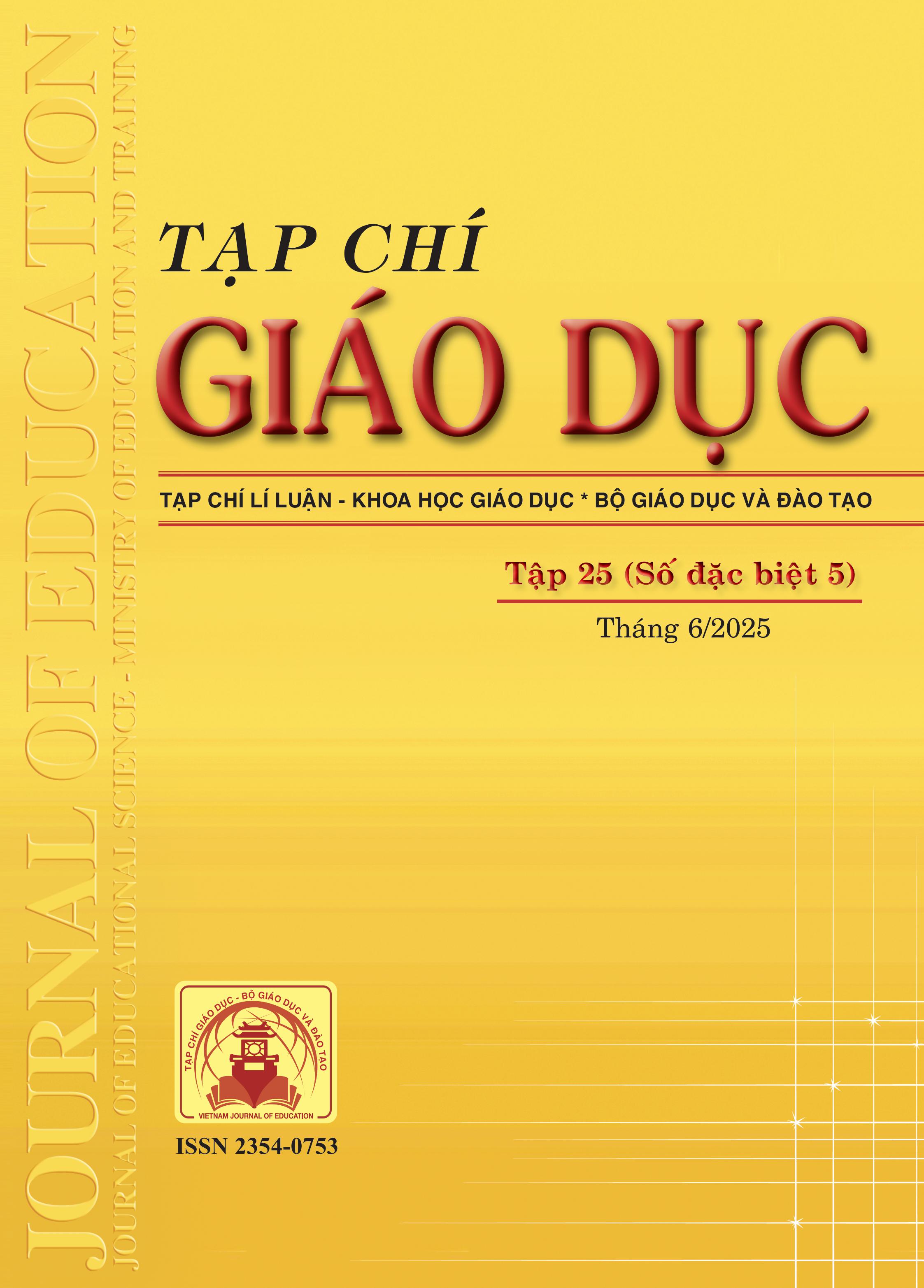Bộ công cụ đánh giá hệ sinh thái học tập sáng tạo cấp mầm non trên địa bàn thành phố Hà Nội: Cơ sở khoa học và thực trạng đánh giá
Tóm tắt
The creative learning ecosystem for early childhood is an educational environment designed to promote creativity, innovative thinking, and holistic development for children. To assess the effectiveness of this ecosystem, it is essential to develop a scientific, comprehensive, and feasible evaluation tool. This tool is not only a measuring instrument but also serves as a guideline, supporting educational managers, teachers, and parents in improving education quality and enhancing children's creative abilities. In this paper, the author presents the research results on the theoretical basis for developing the tool and the evaluations from preschool teachers and managers on the “Creative Learning Ecosystem Evaluation Tool for Early Childhood in Hanoi.” The research results indicate that the tool meets practical requirements, ensuring reliability, feasibility, and usefulness. These findings provide a scientific foundation for implementing the “Creative Learning Ecosystem Evaluation Tool for Early Childhood in Hanoi” in practice.
Tài liệu tham khảo
Bronfenbrenner, U. (1979). The ecology of human development: Experiments by nature and design. Harvard University Press.
Epstein, J. L. (2001). School, family, and community partnerships: Preparing educators and improving schools. Boulder, CO: Westview Press.
Fullan, M. (2007). Leading in a culture of change. John Wiley & Sons.
Hargreaves, A., & Fullan, M. (2012). Professional capital: Transforming teaching in every school. New York, NY: Teachers College Press.
Kolb, D. A. (1984). Experiential learning: Experience as the source of learning and development. Englewood Cliffs, NJ: Prentice Hall.
Kop, R., & Hill, A. (2008). Connectivism: Learning theory of the future or vestige of the past?. International Review of Research in Open and Distributed Learning, 9(3), 1-13. https://doi.org/10.19173/irrodl.v9i3.523
Robinson, K. (2011). Out of our minds: Learning to be creative. Capstone Publishing. https://doi.org/10.1002/9780857086549
Runco, M. A. (2014). Creativity: Theories and themes: Research, development, and practice. Elsevier Academic Press.
Siemens, G. (2005). Connectivism: A learning theory for the digital age. International Journal of Instructional Technology & Distance Learning, 2(1), 3-10.
Sternberg, R. J. (2006). The nature of creativity. Creativity Research Journal, 18(1), 87-98.
Đã Xuất bản
Cách trích dẫn
Số
Chuyên mục
Giấy phép

Tác phẩm này được cấp phép theo Ghi nhận tác giả của Creative Commons Giấy phép quốc tế 4.0 .












